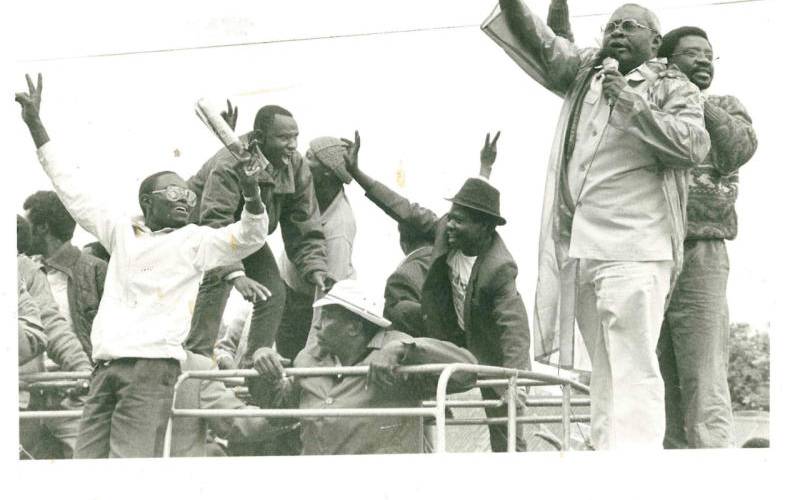Like old wine, James Aggrey Orengo appears to ripen with age. In a way, the prominent lawyer has seen it all before. In our second instalment of Kibaki Cabinets, which is published by the Kenya Year Book Editorial Board, the spotlight falls on political titan James Orengo
Siaya Senator James Orengo and Martin Shikuku (far right) address a Saba saba rally atop a Toyota Stout pickup truck.[File, Standard]
